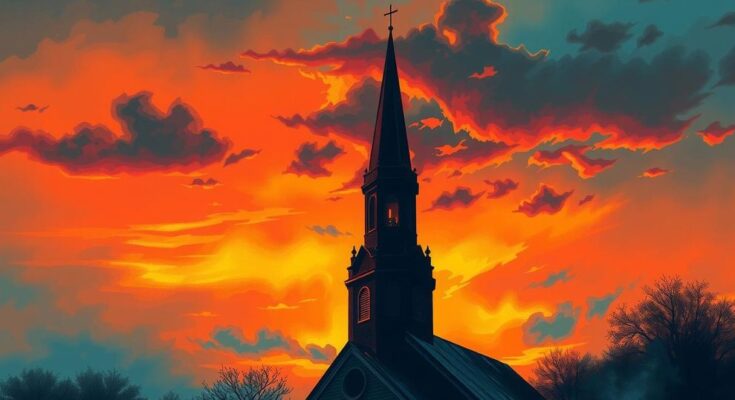In Nicaragua, preparations for the cherished Lent and Holy Week celebrations have been stifled, with severe restrictions imposed for a second year. This crackdown reflects a deepening persecution of religious expression, as exiles and human rights advocates highlight the severe plight of the Catholic Church. Activists report that the Ortega government is one of the most aggressive in silencing religious voices worldwide.
Numerous priests, now exiles after suffering incarceration under appalling conditions, have shared their stories under anonymity due to fears for their families in Nicaragua. With over 200 religious figures in exile, the capacity to hold Mass or counsel parishioners in small communities has been significantly compromised, leaving many in spiritual limbo.
Those still in Nicaragua face invasive surveillance measures, required to seek police permission even for visiting the sick and submit their sermons for scrutiny. With assets often frozen, many struggle to acquire basic necessities, creating a dire environment for clergy who wish to serve amidst incessant threats.
The U.S. government has condemned the repression led by co-presidents Ortega and Murillo, unabashedly criticising their attempts to eradicate the Catholic Church. Secretary of State Marco Rubio, during a recent visit, emphasised how anyone opposing the regime faces dire consequences.
The Commission on International Religious Freedom corroborated this narrative, labelling conditions in Nicaragua as “abysmal.” With an overwhelming majority of the population identifying as Christian, authorities have been seen harassing clergy, forcibly exiling church leaders, and allowing violence against places of worship, including vandalism of historic artefacts.
Maureen Ferguson, a commissioner with the U.S. body, lamented the impact of these actions on nuns servicing the needy, asking what becomes of those dedicated to supporting the destitute when they are forcibly removed. In efforts to stifle traditional religious expressions, police presence at previous Easter processions was overwhelming, with only government-aligned clergy authorised to conduct public worship.
Félix Maradiaga, a leading opposition figure, described the regime’s attempts to fabricate an alternative religious reality by controlling spiritual leaders and symbolism. His words underscore the historical tension between the Sandinista regime and the Catholic Church, particularly following the church’s support for citizens during violent protests in 2018.
As the government brands dissident clergy as “terrorists,” the church has emerged as a rare voice standing against state violence. Maradiaga recalls profound moments when the church embraced those suffering, demonstrating the relentless spirit of compassion in the face of oppression.
Grassroots lawyer Martha Patricia Molina reported nearly 1,000 instances of church persecution since 2018, indicating a worrying trend toward increased intimidation and silence among clergy. The current environment fosters fear, stifling open discourse about abuses in Nicaragua.
Out of the country’s bishops, nearly half, alongside 150 clergy and numerous nuns, have been exiled due to the oppressive context. The Vatican has confirmed groups of priests sent into exile since 2022, all embodying resilience amid hardship.
Despite the overwhelming atmosphere of fear, some Nicaraguans continue to gather in secret for Mass, showing an unwavering determination to practice their faith. Personal stories of loss echo through the silence, with clergy and citizens alike clinging to the hope of a future free from oppression. As long as there is belief in a brighter tomorrow, the spirit of the faithful remains unyielded, even in exile.
Nicaragua is experiencing intensified repression against the Catholic Church, with significant restrictions on Lent and Holy Week celebrations. Over 200 religious figures are in exile, while those remaining face scrutiny and demands for reporting to authorities. The U.S. government criticises these abuses, citing the regime’s efforts to erase the church’s influence, leading to a fearful environment for worshippers and clergy alike. Despite this, a resilient spirit of hope persists within the faithful community.
The crackdown on the Catholic Church in Nicaragua has created an environment deeply hostile to religious expression. With numerous clergy in exile and countless others living under constant surveillance, the future of faith in Nicaragua appears bleak. Yet, within this struggle lies a persistent hope among many believers, who continue to strive for a future where faith can flourish once more, unencumbered by fear and persecution.
Original Source: www.yourvalley.net



